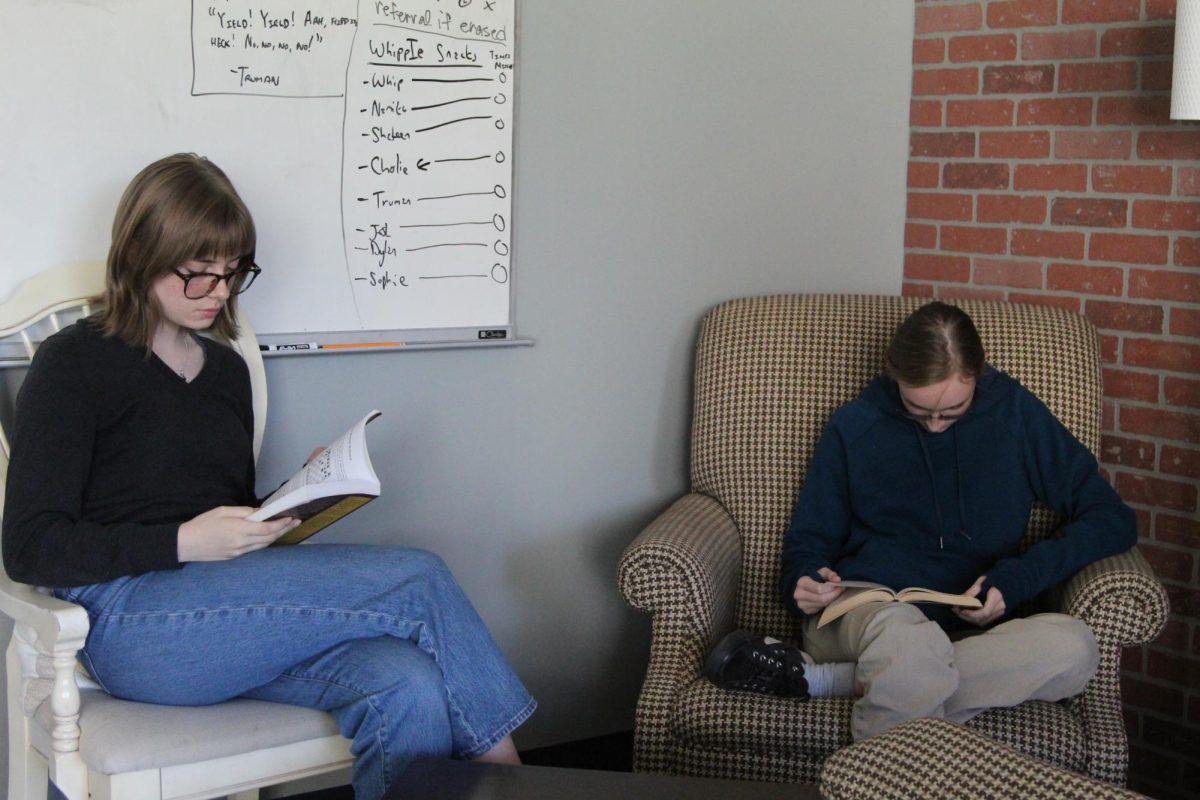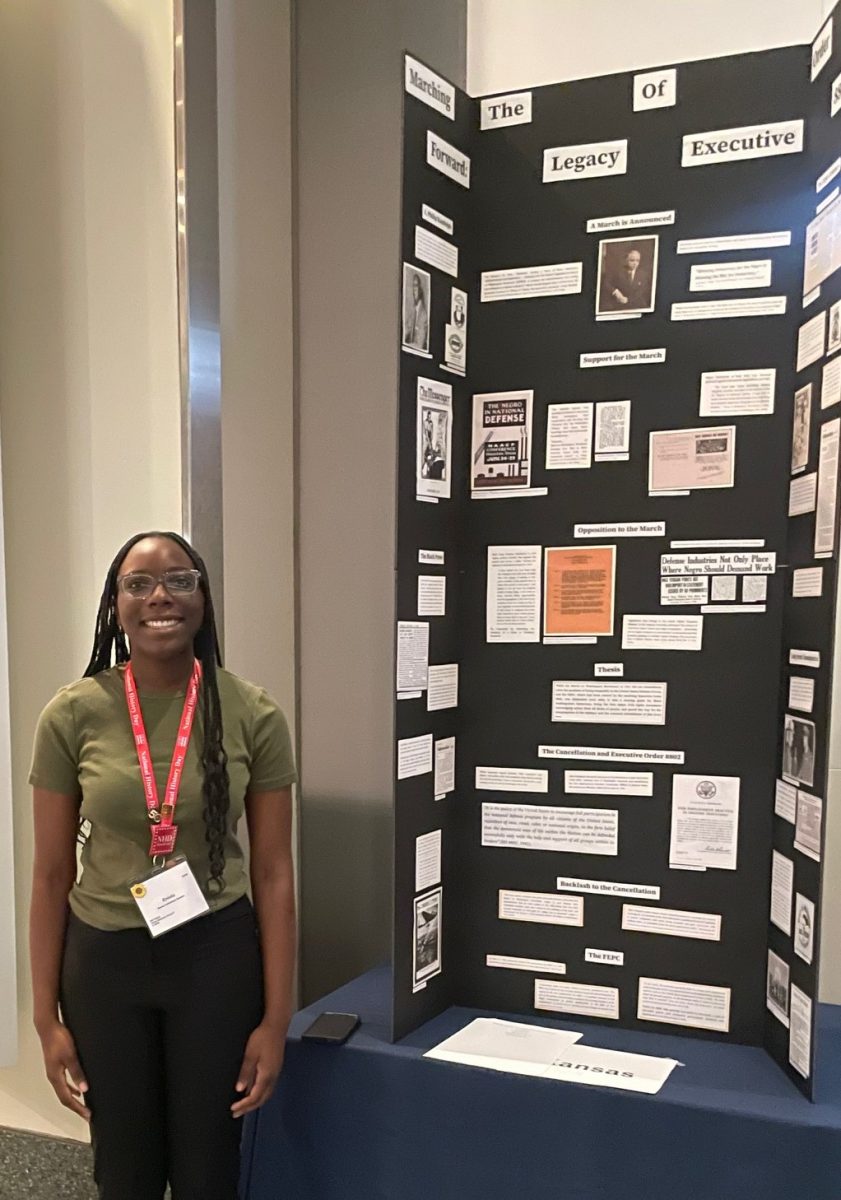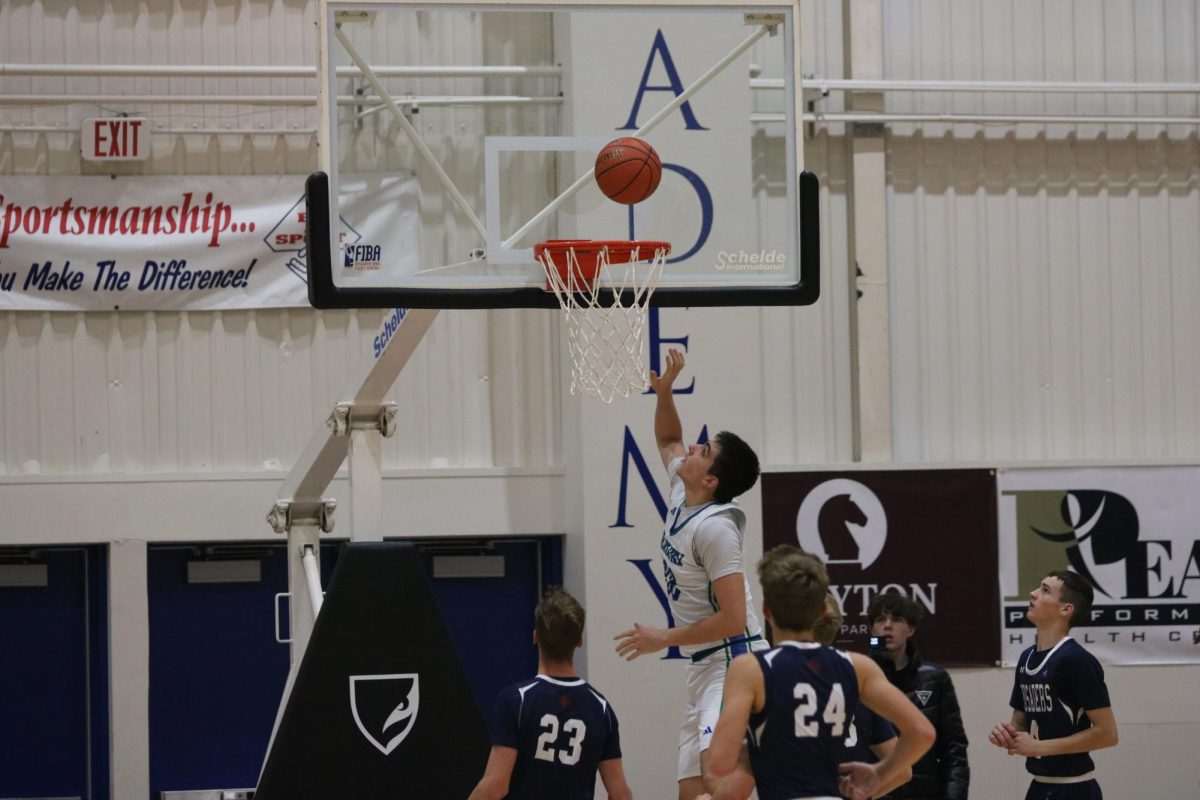It’s 6:00 pm, and you finally arrive home. After a long day of school and soccer practice, you can’t wait to mindlessly scroll on your phone or watch your favorite show. But wait! You just remembered that you have an English reading assigned. With a broken heart, you dig out a copy of the latest novel from your backpack and get to work. Tears drip onto the pages, blurring the similes and the metaphors you have to identify. Your trembling hands can’t bear to hold a pencil as you try to take notes on the characters and plot. “Gah!” you exclaim with clenched fists. “I curse the English language!” you say with eyes upturned to the sky.
While this experience with English reading may be commonplace, some students have managed to enjoy some of their assigned material. For junior Truman Sizemore, Homer’s “Iliad” was one of his favorite books. “I really liked Mr. Pulsinelli’s explanation of it,” he says. “Also, it’s just a fun book … the overall story was really good … and there was a lot of fighting.” Homer’s epic about a war between the ancient Greeks and Trojans is certainly bound to attract some fans.
For sixth grader Sophie Olson-Kelly Ramirez, she prefers “Mystery, Sci-Fi and Fantasy” books, but her favorite is “definitely Mystery.” She found that “Running Out of Time” was her favorite novel she’s read for school. “I like plot twists, because they’re just fun … I connected with Jessie in a way because I’ve been in a circumstance where I felt held back by something and I didn’t realize what it was until I was … through it,” she says. “Running Out of Time,” by Margaret Peterson Haddix, tells the story of a girl who thinks she lives in a small 1840s village. But when the town’s children get diphtheria, Jessie must venture into the outside world for the cure.
Eighth grader Madilynn Walters’s favorite book is “Lord of the Flies” by William Golding. While often considered a grim outlook on humanity, the novel describes what happens to a group of young-teenage boys after they become stranded on a remote island. “I liked the story, and I like how it’s not 100% realistic,” she says. In general, Walters prefers fiction books: “I don’t really like books about tons of history, because I feel like I could learn that about history in other ways. I tend to like more fiction,” she says.
Ultimately, all these novels were assigned for a reason: “To teach us a lesson,” Walters suggests. Whether your class explores the complexities of war and grief through the Iliad or the power of perseverance through Running Out of Time, the moral of the stories far outlasts the challenges of reading and essays.





